Welcome to First Look Friday, BikeRadar’s weekly roundup of the hottest kit to land with us ahead of testing – or, perhaps more accurately this week, a close look at the niche bike tech concerns that keep me up at night, and the products that help me solve these problems.
If this unfiltered look into my cycling-addled brain isn’t quite enough to confirm BikeRadar is solely staffed by chronic nerds, why not look back at some highlights from the past week?
I am not embellishing the truth when I say our tech writer, Simon Bromley spends his lunchtimes looking at the latest images from races on Getty trying to spot unreleased nuggets of new tech.
His compulsion paid off this week when we were the first to spot Marc Soler of Team Movistar riding an unreleased UCI-compliant version of Canyon’s Speedmax.
Matthew Loveridge also took a close look at the price of bikes today and compared them to historical prices to assess whether or not bike brands really are ripping us off (spoiler – not really).
The latest reviews from our 2021 Trail and Enduro Bike of the Year test also continued to roll out. Stay tuned for the road test in the coming weeks.
Bontrager Elite Aero VR-CF handlebar
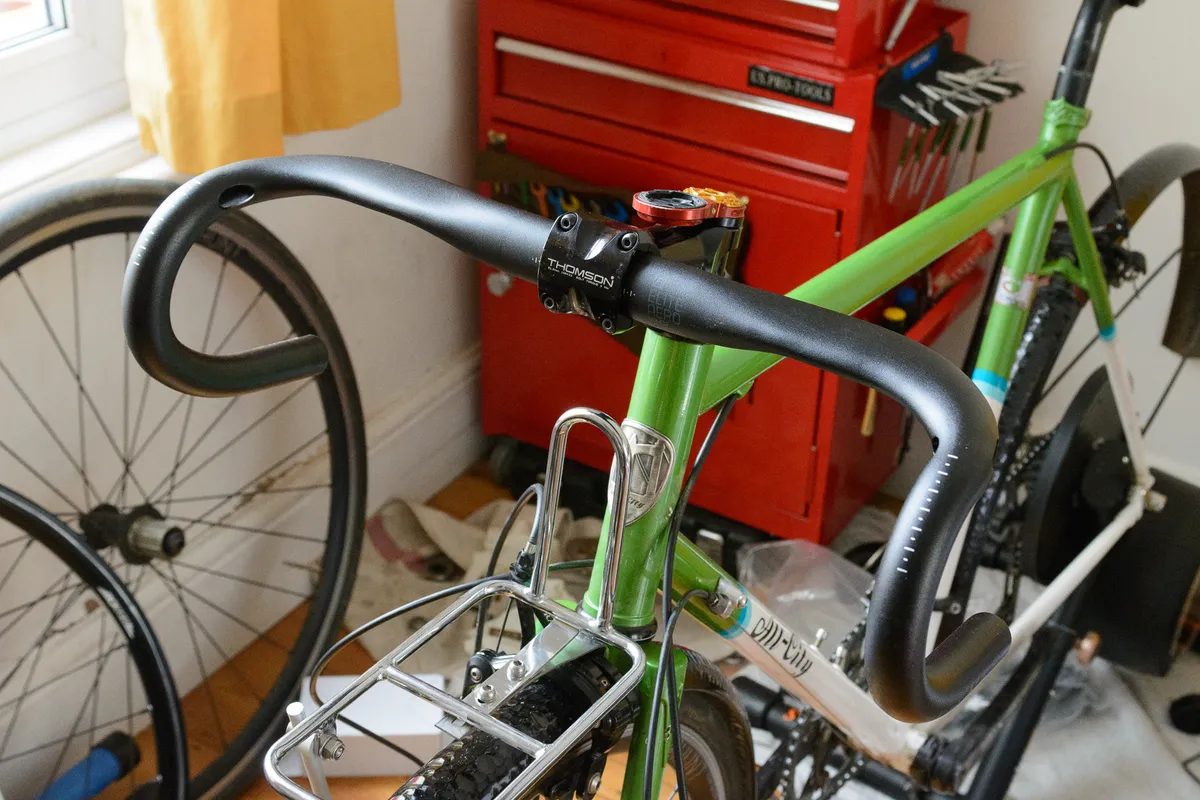
A few weeks ago, I alluded to the conundrum modern road bike geometry presents to the committed handlebar bag enthusiast, with shorter reach figures compensated with long stems making it harder to bring the bag and rack close to the head tube.
A simple way to get around this issue while maintaining your desired fit is to choose a handlebar with a longer reach while reducing stem length, and this is exactly what I have done.
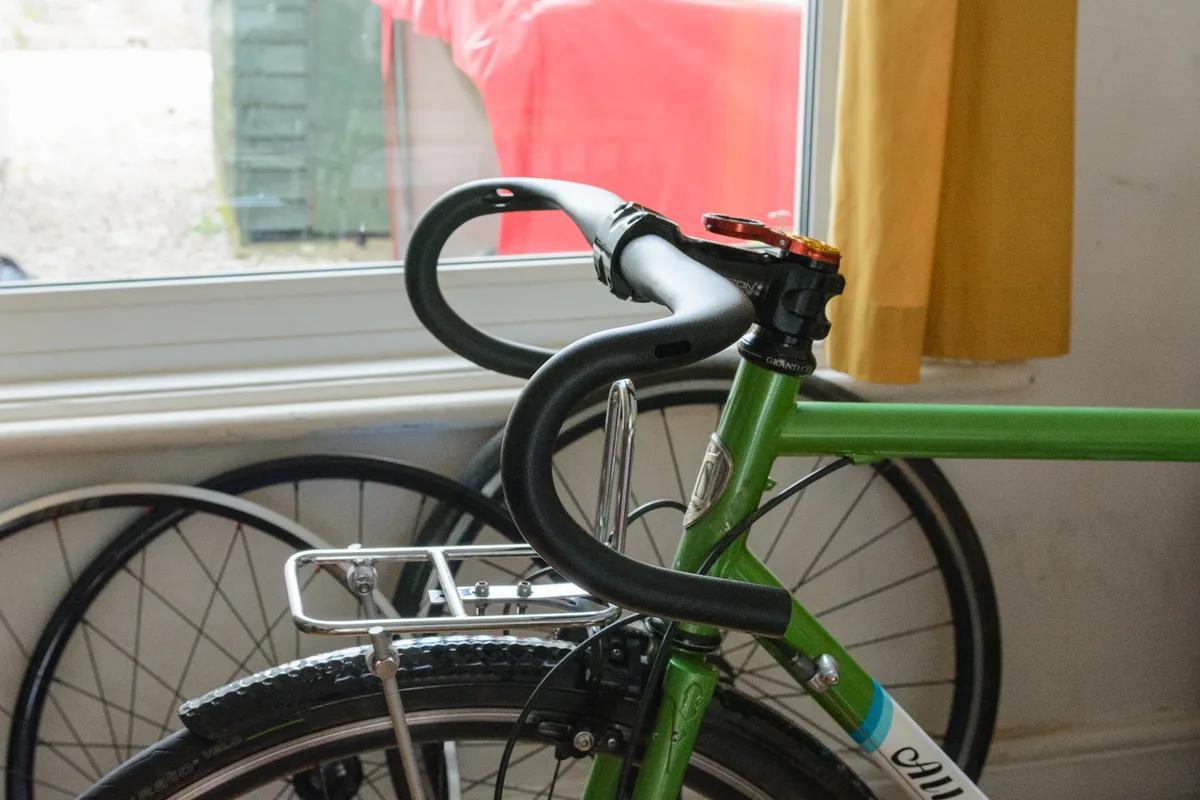
Bontrager’s Elite Aero VR-CF bar (and its carbon equivalent) has one of the longest reaches I have ever come across, stretching out to a chunky 93mm. By comparison, the Specialized S-Works Shallow Bend handlebar, which this has replaced, had 75mm of reach.
Assuming you want to keep your saddle-to-hood position consistent (the place you spend most of your time when riding a road bike), switching to this bar allowed me to lop off a not-insignificant 20mm off my stem length.
This approach has the added benefit of bringing the tops closer, which can provide a more comfortable upright riding position when climbing. Likewise, extending the reach allows you to move your hands back and forth on the ramps (the area between the tops and the hoods), giving you additional useful hand positions.
As you may have ascertained, I’m optimising my Mr Pink to be as comfortable as possible for long days in the saddle, so went a little bit further and dropped down another 10mm, eventually settling on a -6 degrees 90mm stem.
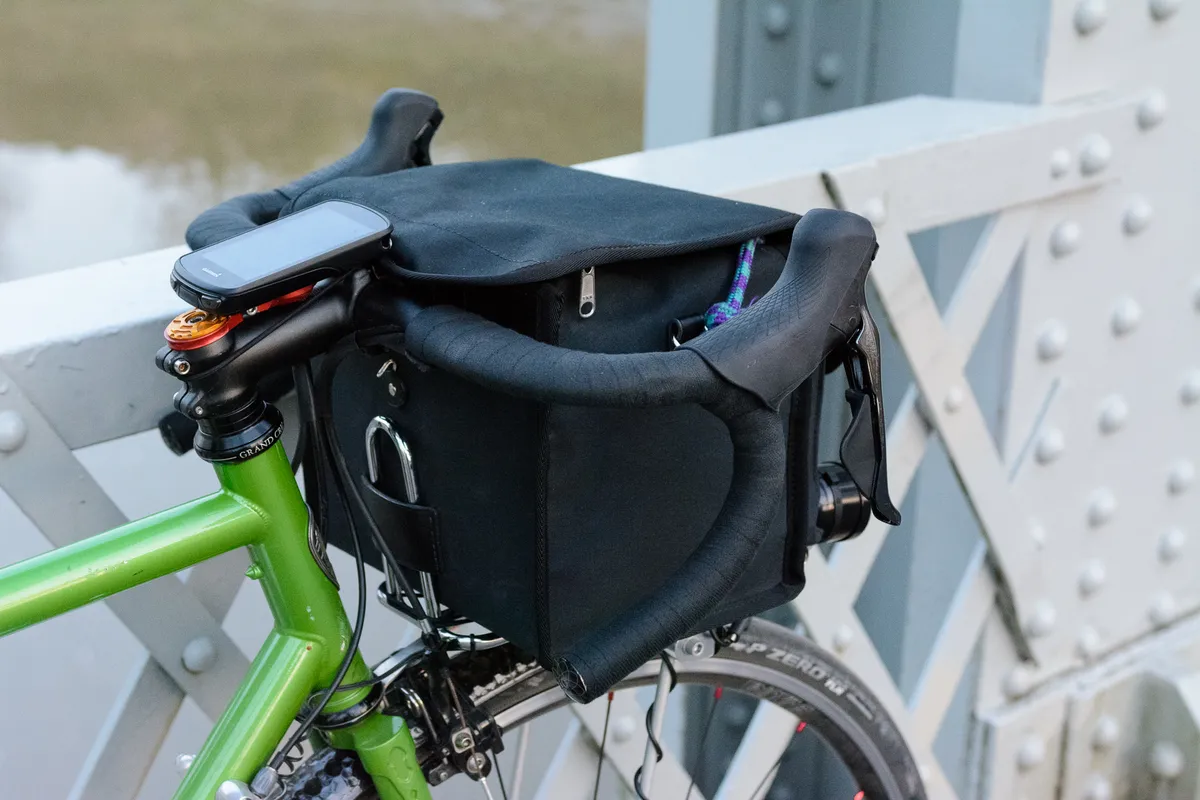
This switch means the tombstone (the supporting strut at the back of the front rack) is now in line with the stem’s faceplate, meaning my bar bag sits squarely and securely, as well as offering a more comfortable overall position on long rides.
Useful fit features aside, the Bontrager Elite Aero VR-CF bar is also really nice, featuring pleasingly broad flattened tops, simple internal routing for both brake and gear cables (which also makes fitting bags easier) and just enough flare to improve wrist clearance when riding in the drops.

I’ve wrapped the bar in cotton bar tape because I am a chronic fashion victim – that stuff is super hard to wrap and not very comfortable, eh? – and I think it has really tied together the whole faux-French constructeur aesthetic I am chasing with this rebuild.
Even if you aren’t interested in fitting some great big daft bag onto the front of your bike, this bar is well worth considering.
- £69.99 / $89.99 / €79.99 / AU$129.99
Outdoor Research Helium Bivy hooped bivouac bag
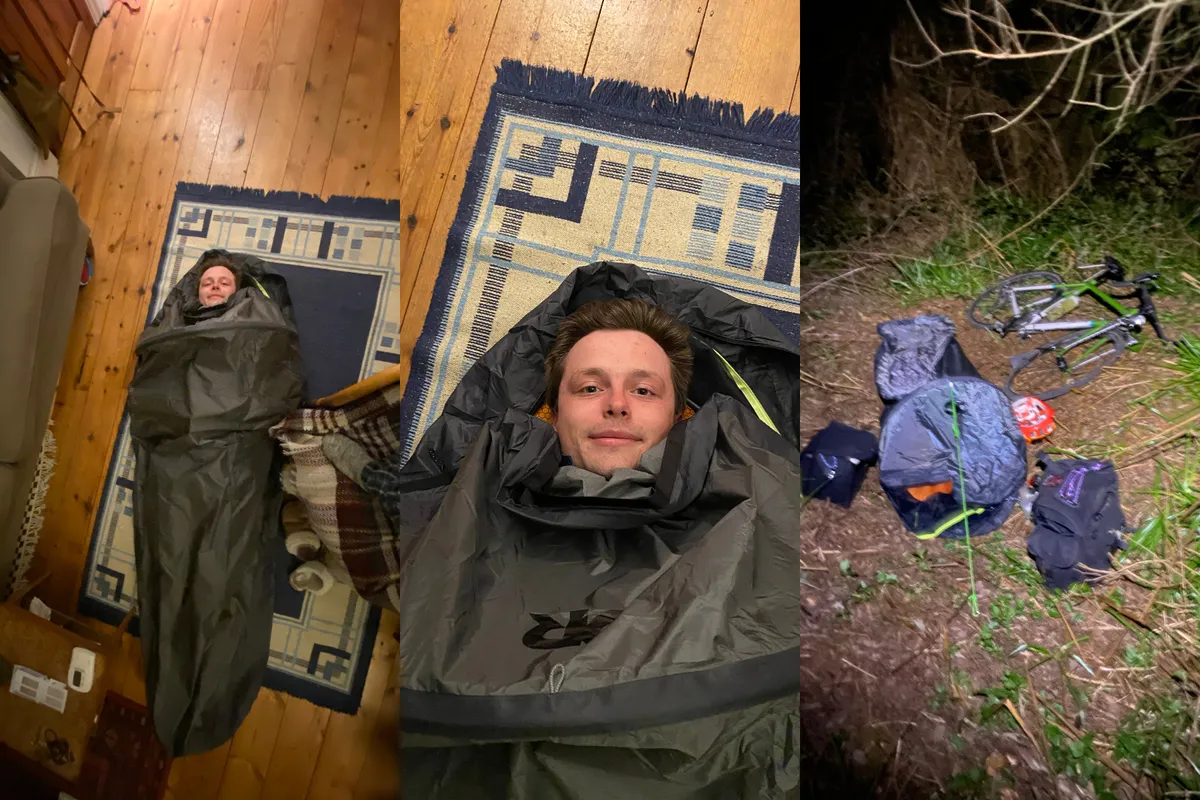
I’ve been super excited to get out and play with the Exped Synmat HL M inflatable camping mat we featured in First Look Friday weeks ago.
Unfortunately, this enthusiasm was tempered the moment I slid it into my AlpKit Hunka bivvy bag.
This is a perfectly good bag, but it’s not the most commodious out there, and I quickly discovered the extra volume of the mat meant the bag fitted more like a sausage casing once my lithe frame was squeezed in there.
This totally compressed sleeping bag and, given a bag’s loft is what actually keeps you warm, it was not a workable solution.
Thus began the hunt for a fancy new hooped bivvy bag to replace my ol’ Hunka.
Hooped bivvy bag vs a tent for bikepacking
A normal bivvy (short for bivouac) bag is simply a waterproof and windproof bag you slide all of your sleeping gear into. This protects you from inclement weather and is the lightest solution possible, but usually leaves your face exposed.
A modern tent usually comprises an inner and an outer layer (the flysheet) supported by poles. The outermost layer is waterproof and windproof and the inner – with the exception of the waterproof groundsheet – is made of a more breathable fabric.
(High-quality single skin tents do exist, but these are specialist ultra-lightweight items.)
A hooped bivvy is a sort of halfway house (halfway tent?), comprising a single layer of breathable fabric with the portion above your head held aloft by a pole.
Compared to a regular bivvy, hooped bivvys have the advantage of providing additional – albeit extremely cramped – living room; more space for sleeping bags or quilts to loft; and the ability to close the bag around your head with either a mesh bug net or the breathable fabric without excess buildup of condensation.
They aren’t quite as comfortable as a tent, but at a comparable price point, offer a smaller pack size and lighter weight. They’re also more discreet when wild camping and very quick to erect.
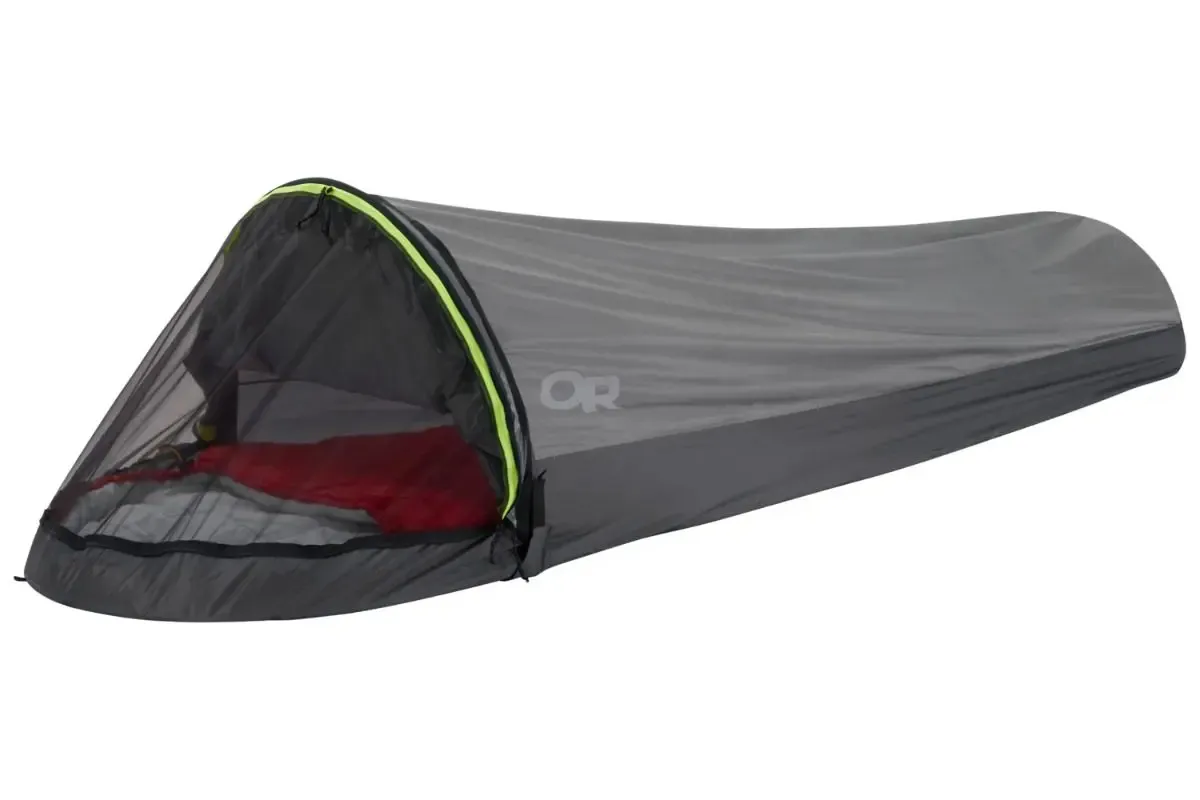
I eventually settled on the Outdoor Research Helium, which came highly recommended by my fabulous colleague and budding hair model, Felix Smith, as well as numerous highly positive reviews online.
I’ve only managed to get out for one (cold) night in the Helium but I’m already a total convert to hooped bivvys.
Pitching takes seconds and it’s very easy to get in and out of the bag. Though it isn’t strictly necessary, the bag definitely benefits from being pegged and guyed out to keep it stable.
The breathability is genuinely impressive. After a full night’s sleep with the door only slightly open, there was only a tiny bit of condensation buildup around the gaps.
Given I’m riding a steel bike covered in canvas bags, it shouldn’t surprise you to hear weight isn’t my primary concern when it comes to bikepacking. Nonetheless, the feathery 465g weight of the Helium Bivvy is certainly nothing to sniff at.
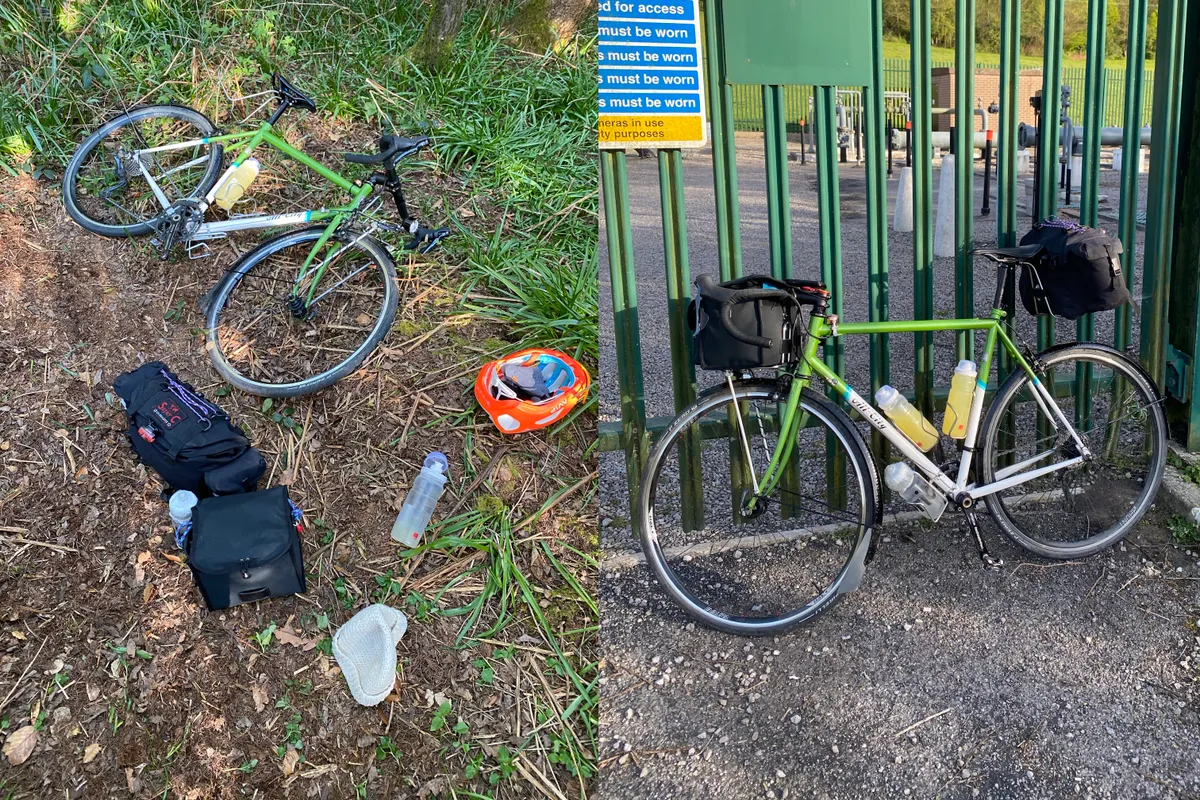
The minimal pack size is what really attracted me to the Helium over its competitors.
With the poles tucked into a pocket and the easily squishable bag lining the bottom, I can fit my sleeping bag, inflatable mat, all of my cooking gear and a pile of spare kit into my Carradice Super C saddle bag.
This leaves my bar bag free to be filled with snacks and other easily accessible items.
This fully compartmentalised approach is the bikepacking luggage nirvana I’ve been chasing for some time – once I’ve broken camp, I know my sleep-deprived brain doesn’t have to think about retrieving anything in my saddle bag until I find a suitably discreet hedgerow to bed down in after a long day in the chair.
The low volume of the Helium is key to this and, given it’s also perfectly pleasant to sleep in, I think we’re going to get on a treat.
- £199.99 / $200
dhb Aeron mitts with Elastic Interface pad
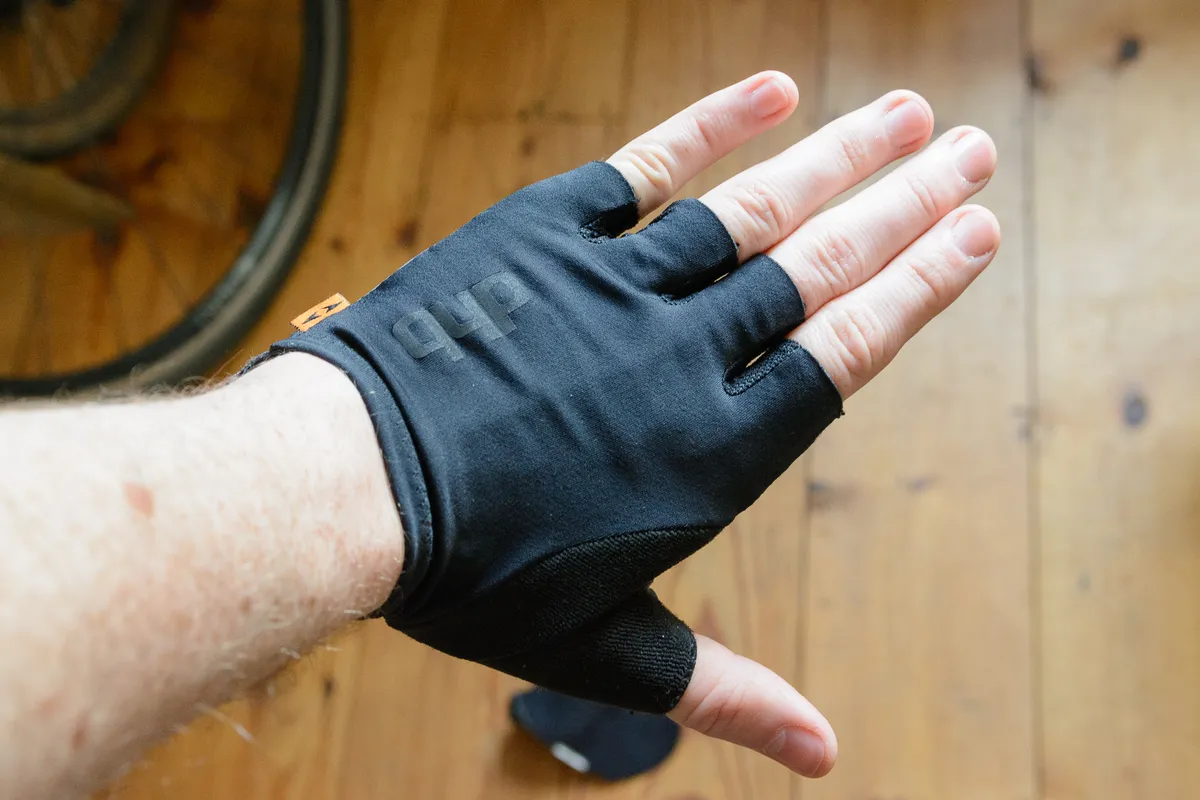
Elastic Interface is one of the world’s biggest chamois pad manufacturers and works closely with many large brands.
Clearly dissatisfied with cushioning bums alone, the brand is now moving into gloves too, and is kicking off its entry into the market with, among a handful (eyyy) of other models, dhb’s new Aeron mitts.
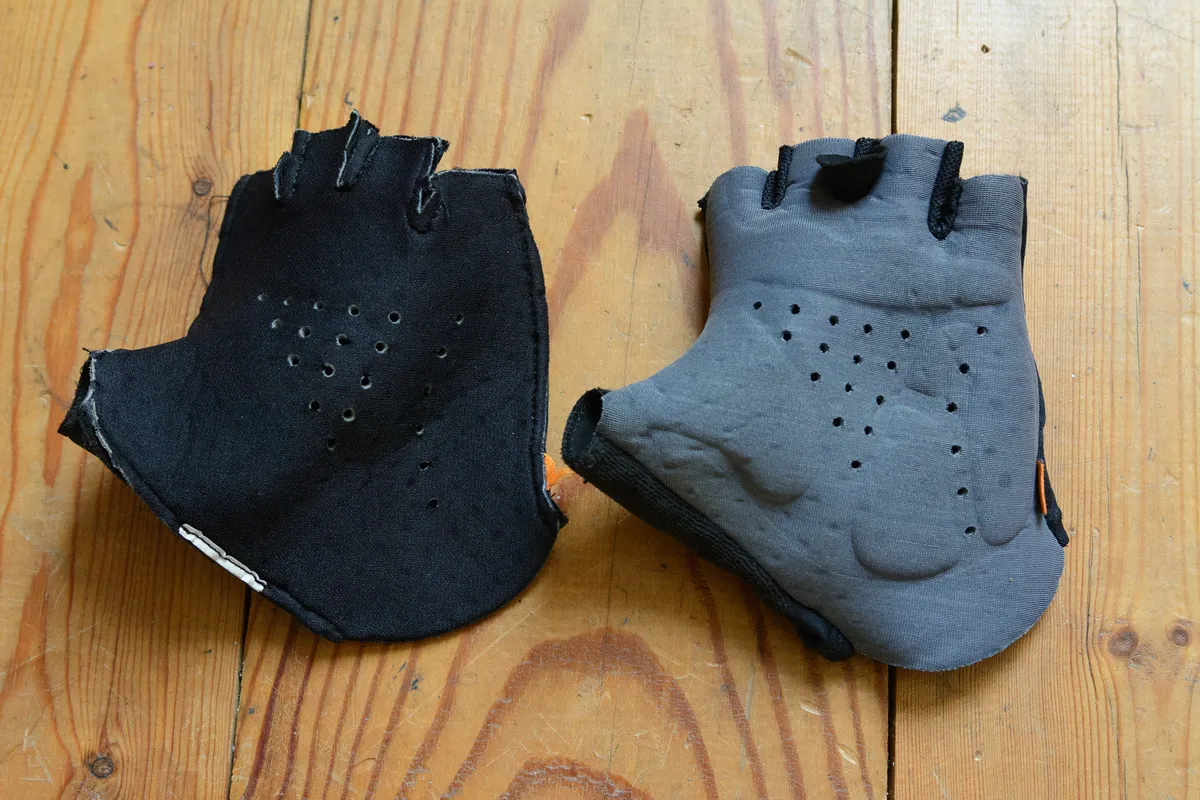
The gloves feature an elastic seamless pad in the palm that is, according to Elastic Interface, 3D-moulded to prevent pressure points on nerves and improving blood flow.
Like my choice of cotton bar tape, I am a self-confessed fashion victim and haven’t ridden with mitts in years because I think they look super dorky.
Jesting aside, the last set of mitts I had caused more problems than they solved, with the big chunky gel pads in the palm causing numbness on long rides. With that in mind, I’m really interested to see whether these will see me regularly be-gloved in the summer months once again.
The fit of the mitts is true to size and they feel excellent when riding, but my early testing indicates they aren’t the most breathable. However, this may be a price I’m willing to pay given just how pleasingly supportive they are (I am also generally a sweaty young Scotsman, so don’t take my initial impressions as gospel). Stay tuned.
- £40, international pricing TBC
Dynaplug DynaPlugger tubeless plug kit
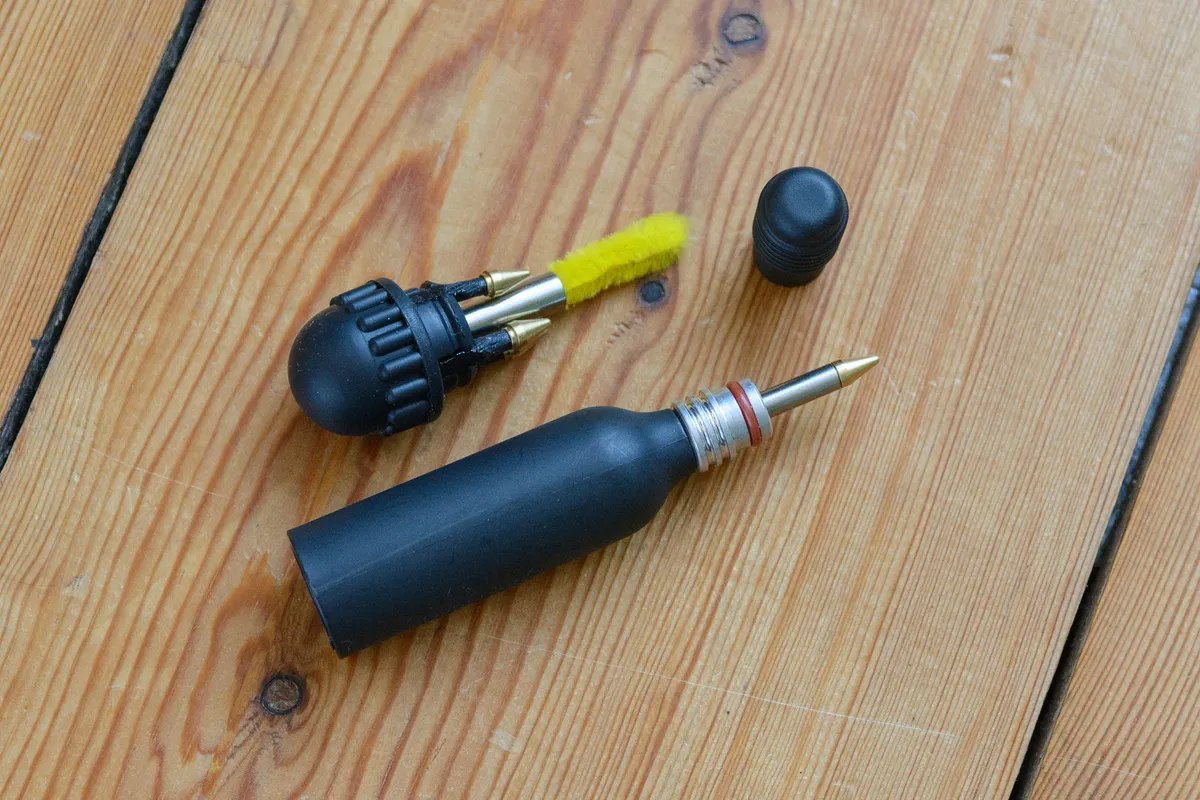
The Dynaplug DynaPlugger is the cheapest and simplest tubeless puncture repair plug kit in the brand’s lineup.
Using a simple glass-filled nylon body paired with push-fit moulded end caps, this is designed to be a “simple, rugged and rad” way to repair your tubeless tyres.
The whole thing weighs 35g on the nose and feels super sturdy. It can store up to three plugs at once in the end cap, as well as an additional pre-loaded plug in the alloy insertion sleeve.
- £24.99 / $29.99
